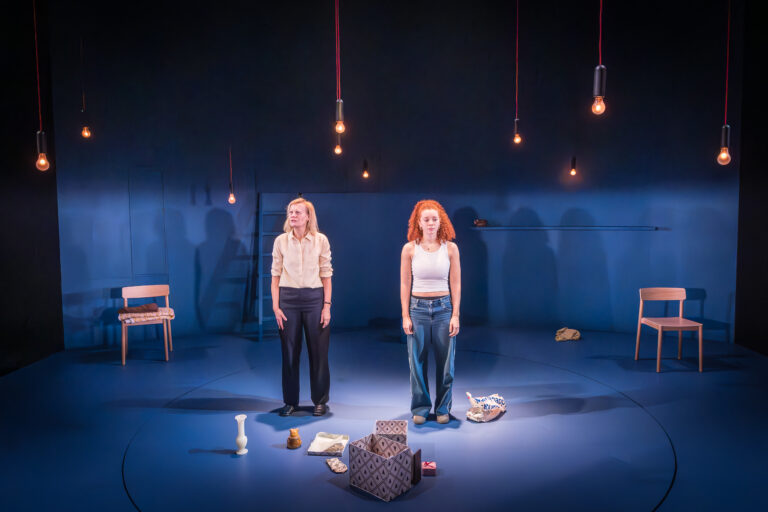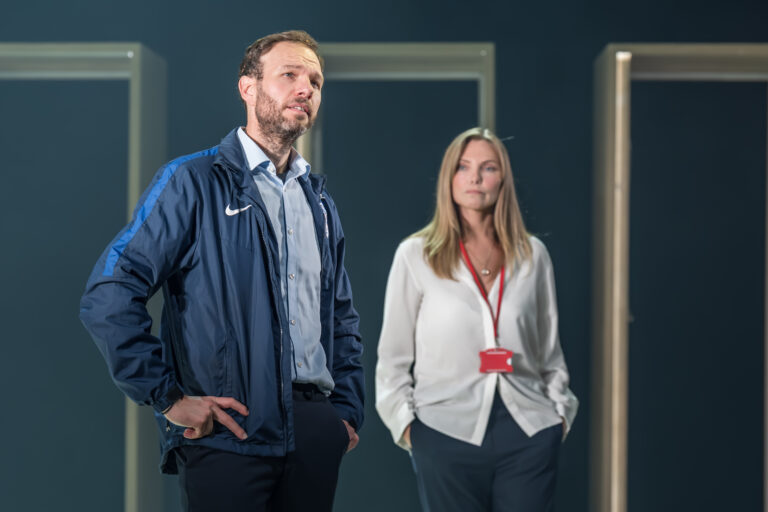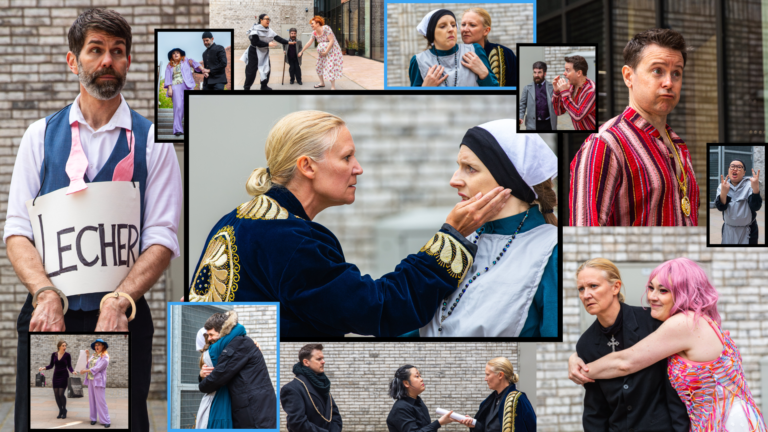Noël Coward’s classic comedy, Private Lives, returns to the West End with its three-month run at the Ambassadors Theatre, writes Bella Christy.
Directed by Christopher Luscombe and starring Nigel Havers and Patricia Hodge OBE the production is set to draw significant attention.
I entered the theatre with both excitement and apprehension. A 1930s comedy, helmed by a male director and featuring a majority white cast isn’t precisely my cup of tea, and I wasn’t surprised to find I was the youngest face amongst the theatregoers. Private Lives is not exactly a ‘Gen Z’ watch, and yet as the production unfolded I relaxed into my seat and began to enjoy the elegantly chaotic, amusing, and witty (yet slightly problematic) production.
The play’s focus on the relationships of older characters was refreshing in comparison to the typical, youth-focused, theatre and media content widely consumed. Despite their mature age, the relationships we see are wildly relatable, with childlike temper tantrums and angst reminiscent of teenagers, I found myself resonating with the worries and anxieties of these couples. Perhaps age isn’t so defining when it comes to the complexities of love.
Act 1 is concerned with a divorced couple (Amanda and Elyot) who coincidently end up honeymooning with their new partners (Victor and Sibyl) in adjacent suites at the same hotel. The audience is treated to a dose of dramatic irony as they first discover the proximity of the neighbouring couples. Moreover, this part provides significant humour, with only a few of the jokes going over my (youthful) head. However, I find it somewhat repetitive, with scenes that mirror each other, and predictable, especially if the premise is already known.
In Act 2 we find ourselves in Paris; Amanda and Elyot have fled their new spouses, deciding to give their tumultuous and intoxicating relationship another go. As the curtains rise, a luxurious Parisian flat is revealed. The walls are painted in a bright crimson colour; a house of sin? The one long scene takes us on a journey through the ebbs and flows of Amanda and Elyot’s relationship. It is distinctly fast-paced with the mood constantly shifting. Beginning blissfully, almost honeymoon-like, quickly we are shaken out of this false sense of serenity as the couple fall back into their toxicity. Lust, resentment, stubbornness and love take place as we are given what feels like a whole lifetime of ups and downs in a single act.
I couldn’t help my disappointment at the missed opportunity to revolutionise or at least modify representations of gender norms. One particular line alludes to how women should ‘be pretty and play the piano’, a stereotype confining women’s roles to pleasing men, both visually and aurally. While the intention might have been to surprise and provoke the audience, the women’s actions did little to challenge these expectations. While Amanda can be viewed as slightly bohemian within the context of the 1930s, due to her travels and promiscuity, this behaviour is not groundbreaking. Additionally, Sibyl appears rather one-dimensional, primarily defined by her relationships with men within the production. Even though this play is set in the 1930s, I do not view this as a barrier for outdated norms. Modern performances of Shakespeare’s most gender-problematic plays acknowledge this past while embracing contemporary attitudes and advancements and maintaining the essence of the original (As You Like It currently running at the Globe, for example)
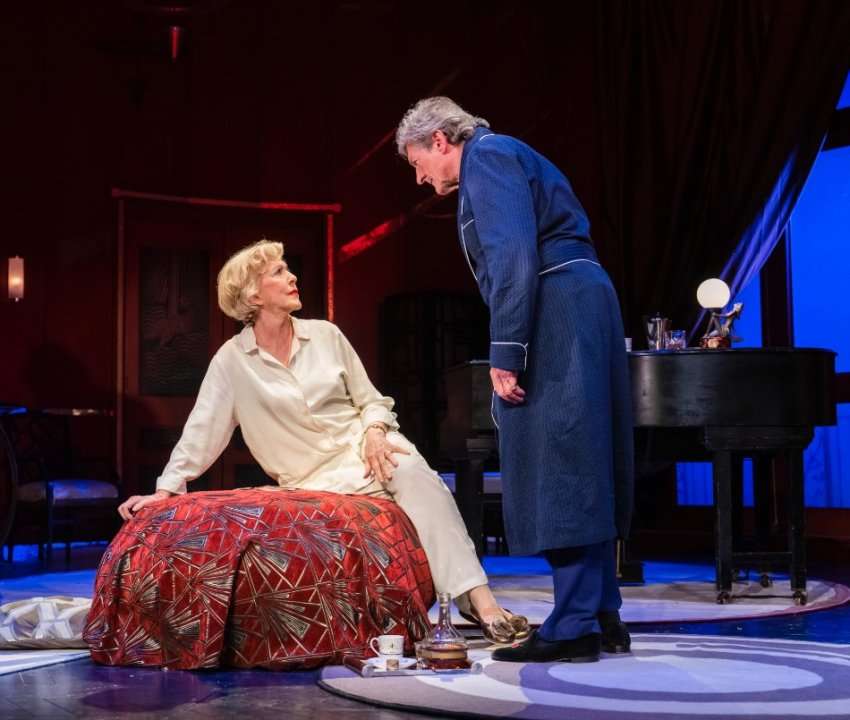
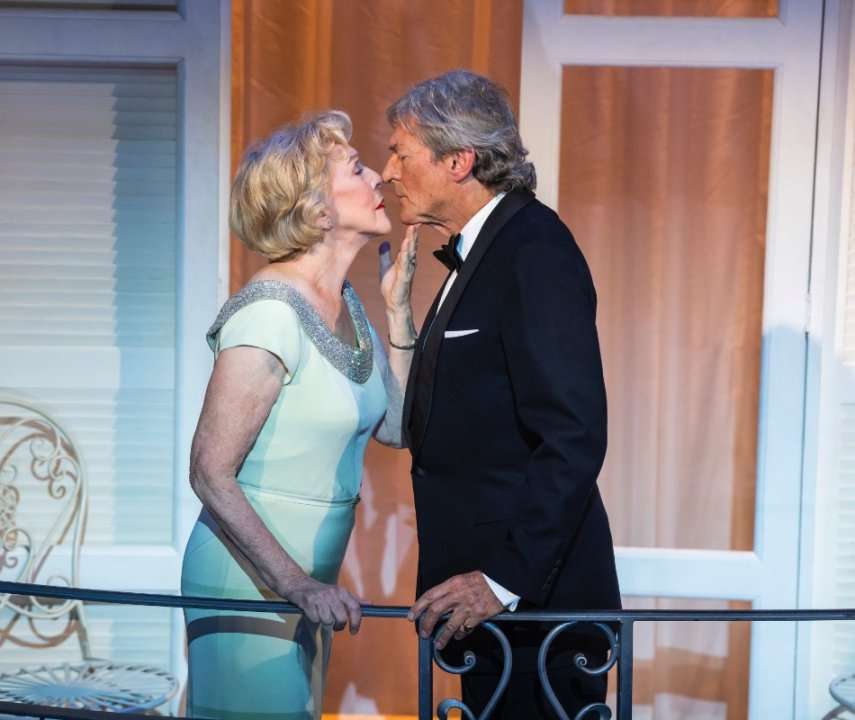
I also take issue with the play’s treatment of domestic abuse. There is mention that Amanda and Elyot had a violent relationship in the past, and in act two, the couple engage in an on-stage fight. I felt the play didn’t address this abuse adequately. Was it supposed to disturb the audience? Make us feel sick? Encourage us to resonate with the unacceptability of the behaviour? If so, it missed the mark, at least for me. This discomfort was made worse by the rather poorly executed stage slap. It’s possible that my viewing angle played a role, but the slap seemed to add a comedic element to the fight, absorbing it into the comedy of the production and this didn’t sit right with me.
Despite these issues or missed opportunities, the production was still of high quality. The acting, of course, was outstanding. Particularly, Patricia Hodge, who I have enjoyed watching on the popular television show Miranda, did a marvellous job of portraying the chaotic elegance of Amanda. Her singing voice too was raw and beautiful, I felt comforted as she sang, transformed into a different era through the quality of her voice.
There is no doubt that the production and acting are of a pristine quality. However, I find the failure to balance representing the 1930s with today’s shift in attitude overcasts the potential of a contemporary Private Lives. Nonetheless, the play represents an older couple and their experiences, which is rare in this time where effort is primarily directed at portraying the youth. It provokes a worthwhile conversation about age and historical representation, so I encourage you to go and form your own opinion.
Ambassadors Theatre, West St, London WC2H 9ND until 25th November. Times: Mon – Sat 7.30pm; Thur & Sat matinees 2.30pm. Admission: £25 – £110.
Booking: https://www.atgtickets.com/shows/private-lives/ambassadors-theatre




